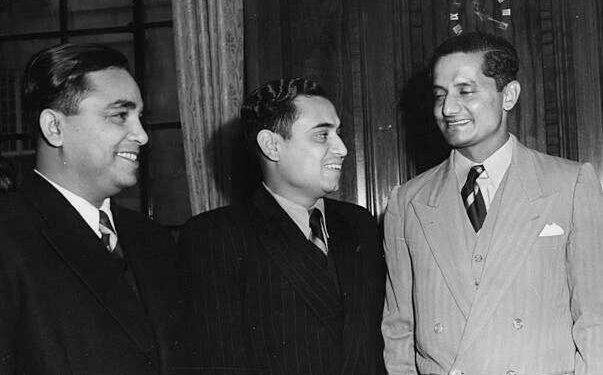Today is the 100th birth anniversary of former Prime Minister Atal Bihari Vajpayee. Vajpayee was such a leader of the country, whose behavior and actions were appreciated even by the leaders of opposition parties. India got a new direction during the tenure of Atal Bihari Vajpayee. Vajpayee’s tenure was very important from the point of view of education, communication, foreign policy and development of the country. Vajpayee was the Prime Minister of India thrice, first for 13 days, then for 13 months and again from 1999 to 2004. During this time he proved that coalition governments can also be run successfully in the country. Let us know 10 such works of Vajpayee for which the coming generations will always remember him.
1- Atal Bihari Vajpayee brought a revolution in the telecommunication sector in 1999. He ended the monopoly of BSNL. New telecom policy implemented. This gave common people an opportunity to make cheap phone calls. Although Rajiv Gandhi is considered the father of telecommunication revolution, the credit for bringing it to the common people goes to Atal ji.
2- Former Prime Minister Atal Bihari Vajpayee took a big step for the education of children. He started Sarva Shiksha Abhiyan in 2000-01. The objective of this campaign was to provide free education to all children between the age of 6 to 14 years. Vajpayee ji implemented this important scheme to improve the future of children.
3- Former Prime Minister Atal Bihari Vajpayee had started Delhi-Lahore bus service to improve India-Pakistan relations. The service began in February 1999. Vajpayee himself went to Lahore by the first bus. There he met Pakistan Prime Minister Nawaz Sharif. Both the leaders signed the ‘Lahore Document’. Vajpayee ji always wanted good relations with Pakistan. The start of this bus service reflects this idea. The Delhi-Lahore bus service was an effort to bring the people of the two countries closer.
4-Vajpayee believed that the security of the country was most important. That is why nuclear testing was conducted in Pokhran in May 1998. This was India’s first nuclear test since 1974. India took this important step under the leadership of Atal ji. He believed that we have every right to our own security.
5- The credit for the Golden Quadrilateral Road Project (connecting India) also goes to former Prime Minister Atal Bihari Vajpayee. He took an important decision to lay a network of roads to connect the country, which was named the Golden Quadrilateral Road Project. He implemented the Golden Quadrilateral Road Project to connect Chennai, Kolkata, Delhi and Mumbai. The entire country is benefiting from it today.
6- Atal Bihari Vajpayee promoted privatization in the country during his tenure. Vajpayee created a unique ministry in his government in 1999 as the Ministry of Disinvestment. Arun Shourie was made its minister. Shourie’s ministry under Vajpayee’s leadership began the process of selling state-owned companies such as Bharat Aluminum Company (BALCO), Hindustan Zinc, Indian Petrochemicals Corporation Limited and Videsh Sanchar Nigam Limited.
On December 7–13, 2001, terrorists attacked the Indian Parliament. This is considered the darkest day in Indian parliamentary history. Many security personnel were killed in this attack. During this period, Atal Bihari Vajpayee was the Prime Minister of the country. After the horrific terror attack, the Vajpayee government enacted the POTA Act, a very stringent anti-terrorism law, considered even stricter than the TADA Act of 1995.
8- During Atal’s tenure, the Constitution Review Commission was also formed. The Vajpayee government constituted the National Constitutional Review Commission in February 2000 to consider the need for constitutional amendment. There was widespread opposition to this commission, after which the Vajpayee government could not carry forward the work of amending the Constitution.
9- In the year 1999, HD Deve Gowda government approved to conduct caste wise census, due to which caste wise census had to be conducted in 2001. But the Atal Bihari Vajpayee government reversed this decision. Due to which caste wise census could not be conducted.
Atal Bihari Vajpayee had announced ‘Chandrayaan 1’ from the Red Fort on 10-15 August 2003. This was India’s first moon mission. ISRO launched it on 22 October 2008 from Sriharikota. Vajpayee made this big announcement on Independence Day.






